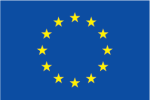The World Conference on Research Integrity (WCRI) that would be held this year in Cape Town, South Africa, had its date postponed to 2022 due to the COVID-19 pandemic. However, to initiate the discussions, the WCRI has hosted a series of virtual discussions as part of the main themes for next year.
The field of Research Integrity has grown and gained relevance in recent years. However, most of the initiatives are developed in the context of high-income countries. We must not forget that research integrity practices are influenced by local culture and values. Therefore, the Cape Town WCRI has expanded the discussions to the contexts of low and middle-income countries (LMIC) and include themes relevant to these contexts such as colonial legacies and research integrity, plagiarism in multicultural and multilingual contexts, and institutionalization of Responsible Conduct of Research (RCR) education and training in low resource settings.


Leave a Reply